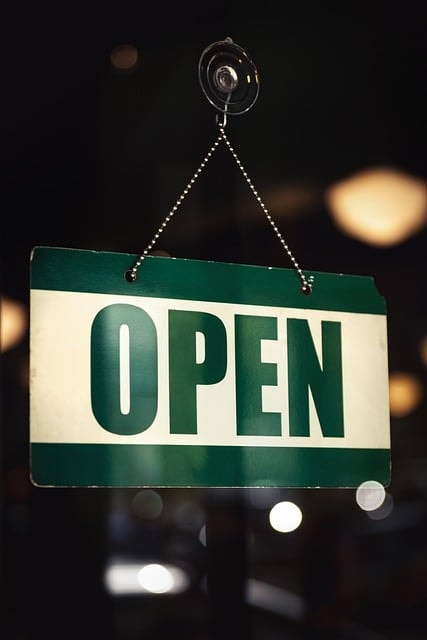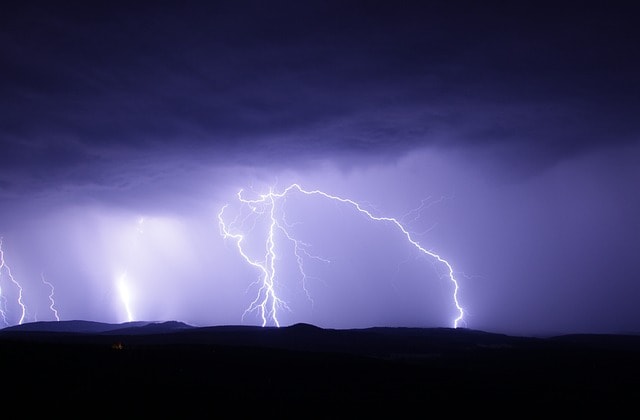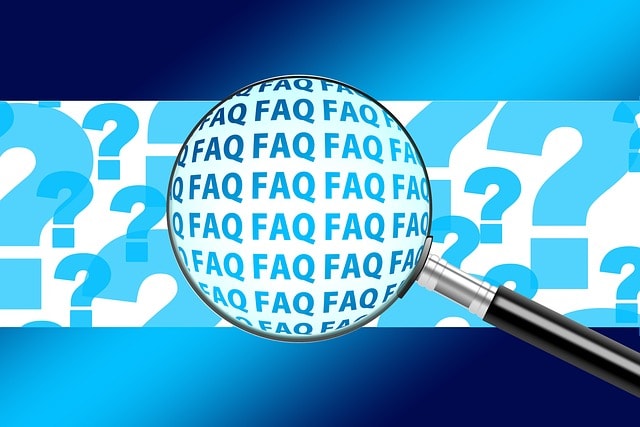What are SBA Loans?
SBA loans are government-backed loans designed to help small businesses. The Small Business Administration (SBA) guarantees 85% of these loans, making it easier for lenders to approve applications.
However, small business owners cannot apply directly to the SBA. Instead, you must apply to an approved SBA lender, which could be a bank, credit union, or alternative lender. Financial institutions must apply to the SBA to offer these loans. The only loan programs the SBA provides directly are Economic Injury Disaster Loans (EDIL).
With the security of the government guarantee, SBA-approved lenders can offer higher loan amounts at low interest rates and longer terms. SBA loan features include:
- Loan amounts: $50k – $5.5 million.
- Interest rates: Starting at Prime + 2.75%.
- Terms: 10 – 25 years.
- Funding Speed: 8+ weeks.
There are several SBA loan programs:
SBA Loan Pros & Cons
Pros:
- Low-interest rates.
- Longer repayment terms.
- Access to capital for small businesses.
- Government guarantee for lenders.
- Flexible use of funds.
Cons:
- Strict eligibility requirements.
- Lengthy application process.
- Collateral may be required.
- A personal guarantee is often necessary.
- May require hazard insurance.
What is Business Hazard Insurance?
Business hazard insurance, also called commercial property insurance, protects businesses from risks that can damage their property. This type of insurance covers physical assets like buildings, equipment, and inventory. A hazard insurance policy offers financial support when disasters occur, helping businesses recover from events like fires, floods, or theft.
Business property insurance provides coverage for specific risks outlined in the policy. When a business suffers a loss, it files a claim with its business insurance company. The insurer then evaluates the claim and compensates the business based on the policy terms.
Proper commercial property insurance is crucial for securing loans. Lenders often require proof of hazard insurance before approving a loan. This requirement ensures that the lender’s investment is safe from potential losses.
Businesses should regularly review their hazard insurance coverage. Changes in operations or property value may affect the amount of coverage needed. Understanding these factors helps maintain adequate protection for all business property.
What SBA Loans require Hazard Insurance?
The SBA requires hazard insurance for various loans, depending on the type and amount of the loan. EDIL loans and SBA loans with collateral typically require commercial property insurance.
SBA 7(a) Loans
SBA 7(a) loans are general-purpose loans for various business needs. Any loan with collateral over $500,00 requires hazard insurance. In addition, any SBA 7(a) loan over $25,000 that includes real estate as collateral also requires commercial property insurance.
SBA 504 Loans
SBA 504 loans provide funds to purchase commercial real estate or other fixed major assets. The financed property is the collateral for the loan, similar to a mortgage. So, most SBA 504 loans require hazard insurance to cover the collateralized assets(s).
EDIL Loans
Hazard loan requirements for an Economic Injury Disaster Loan typically include providing collateral for loans over $25,000, such as real estate or business assets. It is essential to carefully review and meet all the specific requirements outlined by the Small Business Administration to increase the chances of approval for hazard loans.
Flood Insurance
If the collateralized property is in a flood plain, your business must carry flood insurance in addition to hazard insurance. SBA microloans require flood insurance but not business property insurance.
How do I get Hazard Insurance for my business?
You may already have hazard insurance on high-value business assets. Carefully review your current business insurance policies to see if they provide commercial property insurance. In addition, the SBA often includes hazard insurance premiums as part of the total loan cost, so you might not have to add an extra expense.
If you don’t have hazard insurance for an SBA loan, the following steps can help you find an acceptable policy.
Understand Requirements
Businesses must meet specific hazard insurance requirements to qualify for SBA loans. These requirements often include coverage for property damage caused by fire, theft, or natural disasters. Lenders typically ask for enough coverage to protect the loan amount.
Shop for Policies
Start by comparing different insurance providers. Look for companies that offer hazard insurance tailored for businesses. Request quotes from several insurers. This helps in finding the best rates and coverage options. Working with an insurance agent or broker can help with this process.
Gather Necessary Information
Before applying, gather all required documents. This may include your business plan, financial statements, and details about your property. Insurers need this information to assess risk and determine your premium.
Apply for Coverage
Once you’ve selected an insurer, fill out the application form. Be honest about your business operations and property conditions. Misleading information can lead to claims being denied later on.
Review Your Policy
After receiving your business owner’s policy, please read it carefully. Ensure it meets all hazard insurance requirements set by the SBA lender. Check the coverage limits and exclusions to avoid surprises in case of a claim.
Frequently Asked Questions
Here are the most common questions about SBA hazard insurance requirements.
What’s the difference between Hazard Insurance and Flood Insurance?
Hazard insurance typically covers property damage caused by perils like fire, theft, and vandalism. On the other hand, flood insurance specifically protects against water damage resulting from natural disasters like flooding.
While business lenders often require commercial property insurance, flood insurance may be mandatory for properties located in high-risk flood zones. Both types of coverage are essential to ensure comprehensive protection for your business property.
What other types of Business Insurance should I have?
Every business needs insurance beyond hazard and flood insurance. These cover different risks that can affect operations.
General Liability Insurance: General liability insurance is essential for any business, large or small. It protects against claims of bodily injury or property damage.
Professional Liability: Professional liability insurance is also important. It covers mistakes made in professional services. For example, if a client claims you gave bad advice, this insurance helps pay legal fees.
Property Insurance: Property insurance protects your business’s physical assets, including buildings, equipment, and inventory. If a fire or theft occurs, this policy can help recover losses.
Workers’ Comp: In many places, workers’ compensation insurance is required by law. It provides benefits to employees injured on the job, ensuring they receive medical care and lost wages.
Business Interruption: Business interruption insurance can save your finances during unexpected events. If a disaster disrupts operations, this policy helps cover lost income.
Choosing the right business insurance provider is crucial. Research various options and compare policies. Look for those that meet your specific needs and budget.
Understanding insurance requirements is vital to protecting your investment. Each state may have different rules about what types of coverage are necessary.
How much does Hazard Insurance cover?
Hazard insurance primarily protects your property from specific risks. It covers damages from fire, storms, theft, and vandalism. This type of insurance is crucial for businesses to maintain their assets.
Most hazard insurance policies have a set limit. This means they only pay up to a certain amount for covered losses. If damage exceeds this limit, the business owner must pay the difference. Some policies offer additional hazard coverage. This can provide extra protection for specific items or higher coverage limits.
Insurance upfront costs vary based on several factors, including the property’s value, location, and the type of coverage chosen. Businesses in high-risk areas might pay more for coverage. It’s essential to shop around and compare quotes from different insurers.
Understanding what is included in your hazard insurance policy is vital. Not all policies cover the same risks. For example, flood damage may not be included in standard plans. Business owners should read their policies carefully and ask questions if unsure.
Having adequate hazard insurance can save a business during tough times. It helps cover repair costs after a disaster strikes. Without it, a business could face significant financial loss.
What are my alternatives to SBA Loans?
Small business owners have several alternatives to SBA loans. However, lenders may still require hazard insurance for assets used as collateral to secure other small business loans.
Traditional Business Loans
Traditional business loans from banks and credit unions are a common alternative to SBA loans. However, they can be challenging to qualify for due to strict eligibility criteria, such as a strong credit history, collateral, and a proven track record of profitability. Additionally, the application process for traditional business loans can be lengthy and require extensive documentation.
Alternative Business Loans
Alternative business loans offer businesses different funding options outside of traditional bank loans. These types of loans often have faster approval processes and more flexible repayment terms, making them attractive to businesses with specific financial needs or constraints.
You may be interested in one of the following small business loans:
- Bad credit business loan.
- Business line of credit.
- Business loans for women.
- Business term loans.
- Equipment financing.
- Invoice factoring.
- Merchant cash advance.
- Revenue-based loan.
- Working capital loans.
- ERTC advance.
SBA Hazard Insurance Requirements – Final Thoughts
Understanding SBA hazard insurance requirements is crucial for your business. This insurance protects your assets and ensures compliance with SBA loan conditions.
Knowing when you need hazard insurance helps you make informed financial choices. Explore all options to find the best fit for your business. Don’t leave your financial future to chance.
Contact us if you have more questions about SBA loan requirements or to apply for a small business loan. Our alternative business financing experts can help you find the best funding programs to achieve your goals.



















